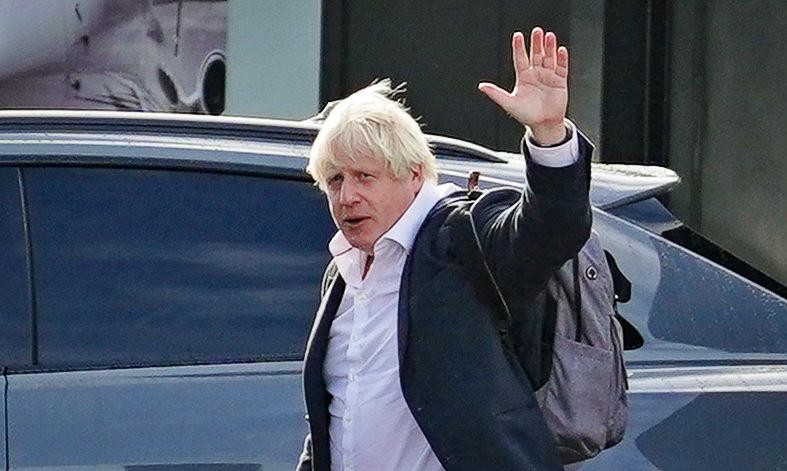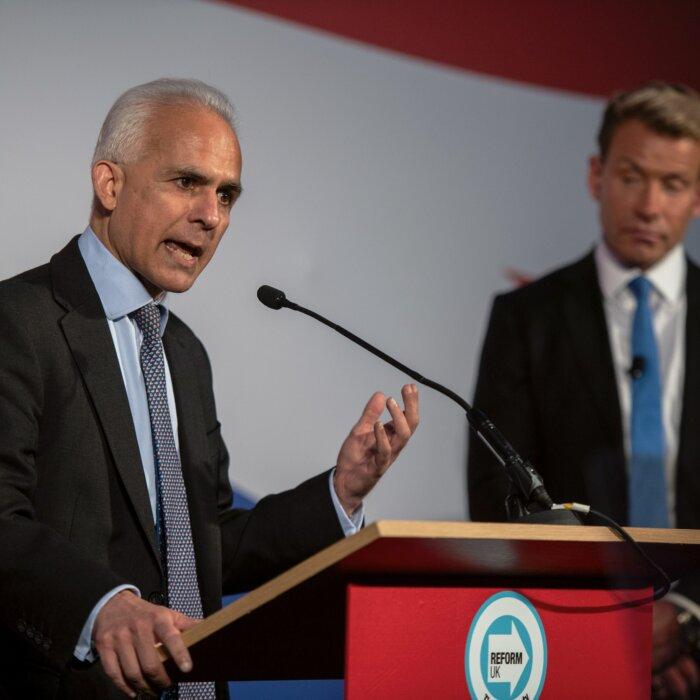A recent poll has unveiled Boris Johnson as the key figure capable of rejuvenating the Conservative Party’s fortunes against Labour’s Sir Keir Starmer, after by-elections suggest Reform UK could maintain its threat to the Tories into a general election.
The poll, released over the weekend by Whitestone Insight—commissioned by stalwart Tory supporter Lady McAlpine—points to Mr. Johnson’s unparalleled popularity among potential Conservative leaders, including versus heavyweights like ministers Lord Cameron and Kemi Badenoch.
Twenty eight percent of respondents said they would support Mr. Johnson in a matchup against Labour’s Sir Keir, outperforming Rishi Sunak, who garnered 25 percent support. Among “lost Conservatives” who are uncertain about their next election choice but reluctant to support the Tories, a significant 52 percent favoured Mr. Johnson over Sir Keir, compared to 39 percent who preferred Mr. Sunak.
Last week, the Labour Party clinched significant swing victories against Tory candidates at by-elections on Thursday with candidates Gen Kitchen and Damien Egan secured triumphs in Wellingborough and Kingswood, overturning Conservative majorities of 18,540 and 11,220, respectively.
Boris Would Bring Back ‘Lost Conservative’ Hopes
The latest poll, involving a comprehensive survey of 13,534 British adults, reveals a striking preference for Mr. Johnson, overshadowing current leader Mr. Sunak, with a significant portion of former 2019 Conservative voters who are now disillusioned, indicating a willingness to return to the fold under Mr. Johnson’s leadership.Andrew Hawkins, CEO of Whitestone Insight, told The Epoch Times, “Rishi Sunak’s narrative attributing by-election results to mid-term blues falls short when faced with the stark reality of the electorate’s shift away from his leadership, spanning across demographic groups.”
“More than half of the ‘lost Conservatives’ express a readiness to support the party again if led by Mr. Johnson, a testament to his enduring appeal,” Mr. Hawkins added.
This sentiment starkly contrasts with the current scenario under Mr. Sunak, where only a fraction of these voters would consider the Conservative Party as their choice.
Reform A ‘Threat’ to Tories
Meanwhile, centre-right Reform UK, under the leadership of Richard Tice and the media firepower of honourary president Nigel Farage, is positioning itself as a significant disruptor in British politics, following impressive by-election performances that placed it ahead of traditional third parties like the Liberal Democrats and the Greens.Director of PeoplePolling, Matt Goodwin, underscored the potential of this “new third force” in analysis released this weekend, predicting Reform to impact the forthcoming general election significantly. While Reform’s current poll standings may seem modest compared to historical highs of its ideological forebears, the party’s traction among 2019 Conservative voters and Brexit supporters is notable.
Other Tory Hopefuls Sink Back
The poll by Whitestone Insight also sheds light on the comparative appeal of other potential Conservative leaders, with Suella Braverman, Penny Mordaunt, Priti Patel, and Ms. Badenoch trailing behind Mr. Johnson in their ability to sway voters in a face-off against Labour leadership.Mrs. Braverman and Ms. Mordaunt each received 23 percent support versus Sir Keir, Ms. Patel at 22 percent, and Kemi Badenoch at 19 percent.
Lady McAlpine’s vision of a “new squeaky clean Conservative Party” under Johnson’s helm resonates with a notable segment of the 2019 Conservative voter base, 45 percent of whom are open to revisiting their support if Mr. Sunak were to be replaced. “It doesn’t matter where Boris goes in the world. People like him and therefore listen to him,” Lady McAlpine asserted over the weekend.
Mr. Goodwin’s analysis suggests that Reform UK is attracting a considerable segment of disenchanted Tory and Brexit voters, hinting at a not-yet-peaked revolt on the right of British politics, suggesting that the political landscape today is more accommodating for a party like Reform UK than it was in the early 2010s, when UKIP peaked under Mr. Farage.
Of fifty key constituencies identified by PeoplePolling where Reform UK could potentially make significant inroads, seats currently held by both Conservative and Labour MPs cut, suggesting that Reform’s influence could extend across the political spectrum.
These seats, characterised by populations that are predominantly working-class, older, white, and less likely to have attended university, now represent strategic targets for Reform’s grassroots rebellion.







